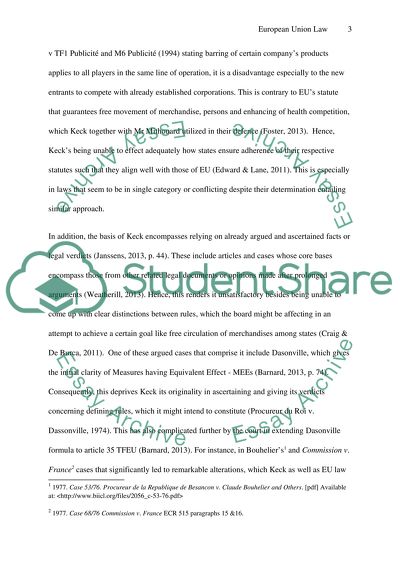Cite this document
(“European Union Law Essay Example | Topics and Well Written Essays - 1500 words - 4”, n.d.)
Retrieved from https://studentshare.org/law/1631188-european-union-law
Retrieved from https://studentshare.org/law/1631188-european-union-law
(European Union Law Essay Example | Topics and Well Written Essays - 1500 Words - 4)
https://studentshare.org/law/1631188-european-union-law.
https://studentshare.org/law/1631188-european-union-law.
“European Union Law Essay Example | Topics and Well Written Essays - 1500 Words - 4”, n.d. https://studentshare.org/law/1631188-european-union-law.


